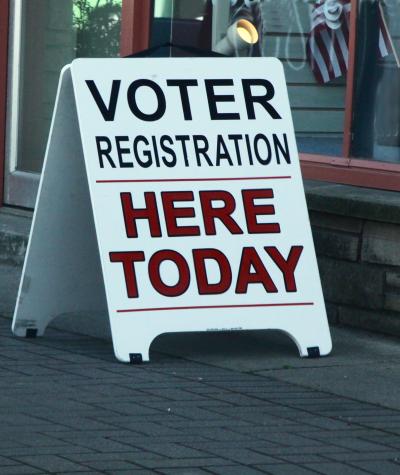Tennessee has one of the lowest voter registration rates in the country. Before last fall’s elections, Tennessee had the lowest voter turnout rate of any state, at just 28.5%. And yet, the state just made it even more difficult to register people to vote and get them out to the polls.
Last Thursday, Tennessee Governor Bill Lee signed into law some of the nation’s most stringent regulations on community organized voter registration activity. Originally introduced in the state legislature as House Bill 1079 and Senate Bill 971, the law enacts a series of onerous restrictions on civic groups and individuals engaged in voter registration and turnout.
Tennessee should be making it easier, not harder, for its voters to access the ballot box and participate in our democracy.
On April 2, the Campaign Legal Center (CLC) sent a letter to Tennessee lawmakers opposing the bill and describing the constitutional problems with the proposed legislation. While the bill was pending, CLC also joined a group of civil rights organizations, including The Equity Alliance, Tennessee Black Voter Project, and Think Tennessee in urging the state legislature not to pass the law.
Now, CLC is challenging the newly enacted law in federal court in Nashville on behalf of the League of Women Voters of Tennessee, Mid-South Peace and Justice Center, the American Muslim Advisory Council, Rock the Vote, and Spread the Vote. These civic organizations have actively engaged in voter registration and mobilization in Tennessee in the past and intend to continue doing so—assuming they can afford to, with this law on the books. CLC’s co-counsel in this lawsuit are the American Civil Liberties Union Foundation, the ACLU Foundation of Tennessee, and the Fair Elections Center.
The new law targets groups that help Tennesseans register to vote with unprecedented civil and criminal penalties. Specifically, the law punishes voter registration groups for mistakes on voter registration applications that they collect in their communities and submit to the state.
Groups that turn in between 100 and 500 “incomplete” voter registration forms may be subject to penalties of up to $2,000 in each county where a violation occurred, and groups that turn in over 500 “incomplete” forms are subject to penalties of up to $10,000 in each county where a violation occurred.
To make matters worse, the law requires voter registration groups to turn in all of the forms that they collect to the state within 10 days, hampering these groups’ ability to follow up with folks to confirm their information or complete or correct errors on their registration forms. And the law does not adequately define what constitutes an “incomplete” form, and exempts only applications that contain just a name or initial.
It doesn’t end there. The law also requires people and groups conducting voter registration to participate in mandatory training and to notify the state of all of every location the groups intend to conduct voter registration.
The law imposes burdensome disclaimer requirements for all “public communications” related to voter registration, requiring a “prominently placed” statement that cannot “be easily overlooked” that says that the “communication is not made in conjunction with or authorized by the secretary of state.”
At best, these requirements are unnecessary; at worst, they’re confusing and likely to dissuade people from working with community organizations to get themselves registered and onto the rolls.
Making matters worse, the law is so unclear about some of these myriad requirements that it is essentially impossible for anyone doing voter registration to be certain they are complying with it. Yet any misstep by a person or group engaged in voter registration is punishable as a Class A misdemeanor under Tennessee law.
These draconian penalties will chill the voter registration activities of community organizations, because they simply cannot afford the potential criminal and civil liability. And they will and severely cripple the work of any organization that proceeds despite the risk.
Tennessee’s law plainly violates the First Amendment speech and associational rights of groups engaged in voter registration drives. The law also unconstitutionally burdens the fundamental right to vote protected by the Constitution by creating impermissible barriers to voter registration in Tennessee. And the vagueness of the law’s various provisions makes it difficult, if not impossible, to comply with, raising serious due process problems.
Learn more about League of Women Voters of Tennessee v. Tre Hargett
